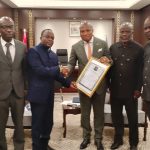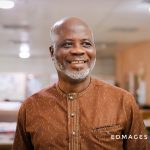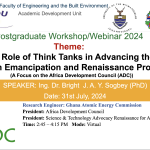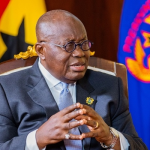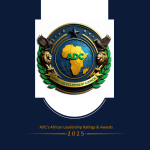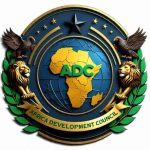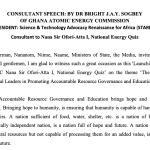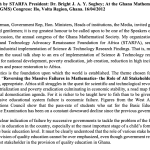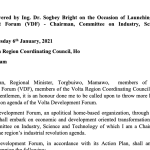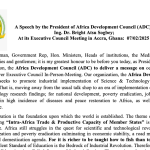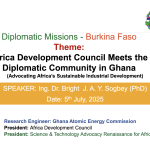There is a saying in our land that the tongue that speaks to a child first shapes the child’s world. We believe, and rightly so, that every child deserves to learn in the language of his or her heart. Yet in the modern Ghanaian classroom where four or five mother tongues may coexist, the noble idea of mother tongue instruction can, if carelessly applied, turn from a bridge of inclusion into a wall of silent exclusion.
This misfortune does not come from the principle itself. It comes from the way it is carried out: through unclear policies, unprepared teachers, poor resources, and power struggles hidden beneath the banner of language. When one child’s mother tongue becomes another’s foreign speech, the classroom becomes less a place of learning and more a contest of tongues.
The Babel in Our Classrooms
In many primary schools across Ghana, a teacher may face a class where Ewe, Ga, Twi, Dagbani and Hausa voices rise and fall like drums in the same courtyard. Linguists call this situation linguistic heterogeneity but the children feel it simply as confusion.
The teacher’s voice, meant to open the door of understanding, becomes a distant song that some cannot follow. Communication falters, the mind struggles between learning the lesson and decoding the language, and those whose tongues are sidelined begin to feel smaller, like guests in their own home.
Research confirms that when the language of instruction is not the child’s native language, comprehension falls, emotional barriers rise, and learning suffers. In a classroom where every other pupil speaks a different mother tongue, which language should lead the way? There is no neutral answer.
The Myth of “Use the Mother Tongue”
It sounds simple to say, “Let the teacher use the mother tongue.” But whose mother tongue? Which one?
Without a clear map of the languages spoken by pupils, without knowing the languages teachers themselves command, and without textbooks and examinations written in those tongues, the policy remains a beautiful idea trapped on paper.
The Ghana’s own plan to use local languages from kindergarten to primary three is a noble vision as the minister maybe thinking. Yet in practice, teachers and head teachers are often left to improvise. Some choose the dominant local language. Others depend on a regional lingua franca such as ewe and Twi. Some simply revert to English for survival. In this improvisation, the smaller languages fade quietly, and so do the children who speak them.
The Teacher’s Tongue: A Blessing or a Barrier
A teacher who cannot speak the child’s language stands like a drummer whose hands are bound. The rhythm may be known, but it cannot be played.
Across Ghana, many teachers are posted without any regard for the languages spoken in their new communities. A teacher from the north may be sent to a Ga or Ewe community. A Fante teacher may find herself in a Dagbani speaking town. What choice does such a teacher have but to use her own language or the one that most parents understand? For her, this is survival. But for the child who sits bewildered, it is marginalisation dressed as education.
The Curriculum’s Silence
Some argue that local languages cannot carry the heavy load of science or mathematics. But that argument is a distraction from the real problem. Every language can express complex ideas if given the time and resources to grow. The real obstacles are the absence of standardised terms, the lack of textbooks, and the limited use of local languages in national examinations.
Teachers must therefore choose between two imperfect paths. They can teach concepts in the mother tongue and risk imprecision, or they can switch to English and risk losing many pupils. It is a cruel choice born of neglect, not of lack of vision.
The Politics Behind the Blackboard
Language in Ghana is never just about words. It is about history, power, and belonging.
During colonial times, English became the ladder to progress, while local languages fought quietly to survive. Over time, Twi spread across the country as a lingua franca. Yet, when its dominance enters non-Twi areas, people feel a quiet invasion of their linguistic space. Ewe, the second most widely spoken indigenous language in Ghana, accounting for about fourteen percent of the population or more than three and a half million people, is often regarded not only as a major cultural force but also as a language with deep spiritual resonance. Some even describe it as a foundational tongue from which other languages draw rhythm and depth.
When a teacher insists on using Twi in a Ga or Ewe classroom, or when a chief insists that teachers must speak the language of the land, both are defending something precious: identity and access. The state must therefore balance these competing truths wisely, ensuring that cultural pride does not become educational injustice.
Questions We Must Ask
If the strength of mother tongue education lies in comprehension, should we still impose one language in a classroom where most do not share it?
Should teacher recruitment and posting consider language competence as seriously as subject knowledge?
What use is mother tongue instruction if national examinations remain in English?
Who will fund the creation of textbooks and resources in Ghanaian languages: the government, the universities, or the communities themselves?
Can teachers in rural classrooms realistically use multiple languages effectively without more support?
How do we measure whether mother tongue education narrows or widens inequality?
And how do we respect the cultural expectations of chiefs while protecting the educational rights of every child?
How Marginalisation Creeps In
When one indigenous language becomes the only language of instruction, only a few pupils truly understand. Others sit in silence, lost in translation. National tests remain in English, so even those who begin strong in their mother tongue fall behind later. Publishers and donors invest in languages with large populations, leaving smaller tongues in the shadows. Teachers naturally favour the language they know best. And slowly, a line appears in the classroom: those who understand and those who do not.
Finding the Middle Path
Hope still lives in this story. There are practical steps to protect both equity and identity.
First, language mapping must be done for every school community so teachers are matched with the languages spoken by their pupils.
Second, teachers should be trained in multilingual teaching methods that allow planned use of more than one language.
Third, essential materials for early literacy and numeracy should be produced in major Ghanaian languages, including Ewe, Ga, Dagbani, and others.
Fourth, internal and national assessments should recognise and accommodate responses in approved local languages.
Fifth, chiefs and parent-teacher associations should be involved in teacher selection, within clear and fair rules.
Sixth, teachers who learn and use additional local languages should be encouraged and rewarded.
Finally, learning outcomes should be monitored, with special attention to how children of different linguistic backgrounds perform.
Equity Before Purity
An elder once said, A river that forgets its source will soon dry up. Indeed, children must hear the rhythm of their mother tongues in the classroom. But the river of education must also flow toward fairness and inclusion.
A one-language policy in a multilingual classroom without preparation, mapping, or trained teachers may repeat the same exclusion the colonial system once created. When a teacher imposes his own language out of comfort, it may seem harmless, but its effect is still exclusion.
Equity must therefore guide us. Every child, whatever their tongue, deserves to understand the teacher, to follow the lesson, and to dream in the language of success.
Mother tongue instruction is not just a policy. It is a promise. That promise will hold only when we invest in the practical machinery that makes it work: language mapping, teacher matching, curriculum development, and fair assessment.
Until then, the tongues of our children will continue to clash in confusion, and our classrooms, meant to be sanctuaries of learning, will remain small towers of Babel.
The time has come to bridge that divide, not with slogans, but with wisdom, planning, and compassion.
Ernest Apetsi,
Executive Secretary-Africa Development Council
Educationist | Development Expert
0274302020
Home


